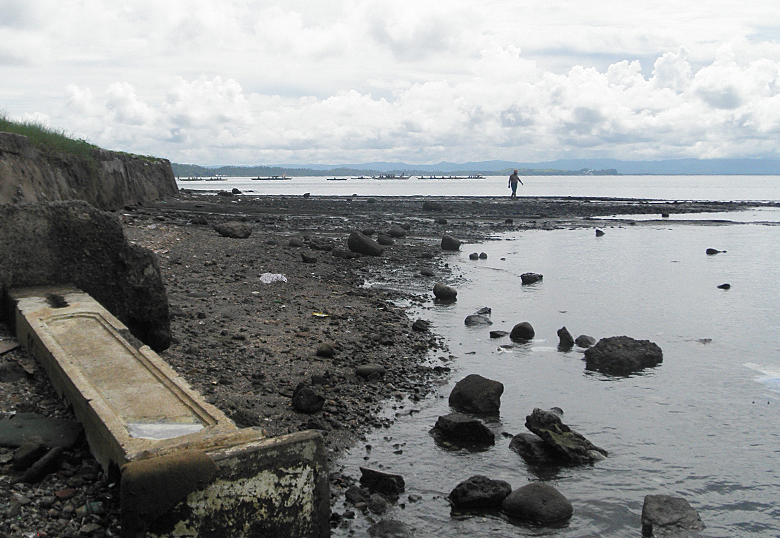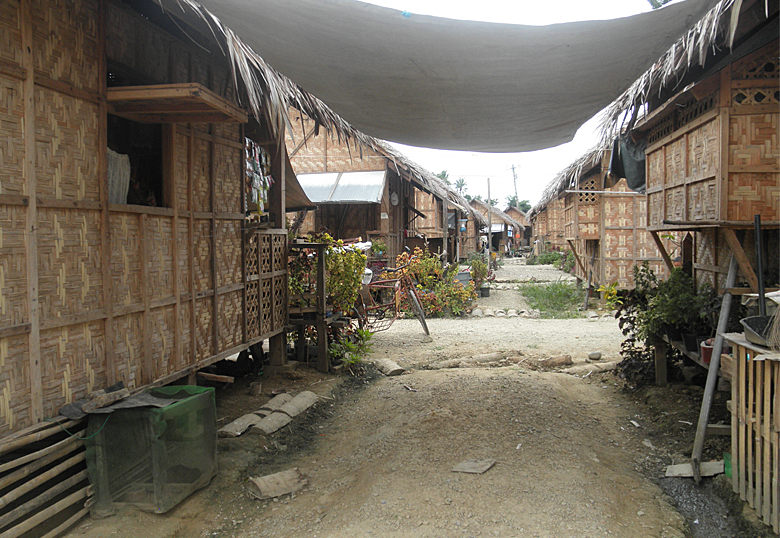What usually takes hours to describe in a classroom came instantly alive for the 14 students who signed up for the University of Lethbridge’s first ever Philippine Field Study course.
Offered through the Department of Women and Gender Studies, Dr. Glenda Bonifacio wanted her students to learn about global citizenship from a gender perspective. In Tacloban, where Bonifacio is from, the students saw how global forces affect people’s livelihoods, the environment and society in general. They also learned a little about the convoluted Filipino political system.
Typhoon Yolanda ripped through Tacloban on Nov. 8, 2013, bringing strong winds and heavy rainfall that caused floods, landslides and destruction. Thousands of people lost their lives.

The students, who received financial assistance through the Campus Alberta Grant for International Learning, saw the devastation left by Yolanda and the rebuilding efforts now underway during their month-long stay. As part of their course work, they listened to lectures from local government officials, Filipino scholars and representatives of non-government organizations. They visited the sites of mass graves, toured areas not yet rebuilt and a women’s weaving co-operative. One day while riding on a form of public transport called a jeepney, they spoke to a woman who told them she had lost 16 members of her family during the storm.
“I feel ‘I’m sorry’ isn’t the right thing to say because it’s so much more than that,” says Cassandra Travis-Bobey, a student who participated in the field course.
“I was preparing myself for this physical devastation where things were not completely rebuilt,” says Jasmine Saler, another student on the trip. “I don’t think I was prepared at all for the emotional devastation that, I feel, still hadn’t really been dealt with.”
She says the need for relief in the form of food, water, medical treatment and shelter is the first concern after a natural disaster but she became convinced that relief for the emotional consequences of such massive loss of life and destruction should also be part of the response.
After Yolanda, relief poured in from around the world but it often didn’t reach those who needed it most. As it can happen after a major natural disaster in any country, political corruption hampered the delivery of aid.

While the country is still recovering from Yolanda, larger forces are also at work in the Philippines, says Travis-Bobey. As part of her course work, she looked at the effects of having multi-national companies as part of the Filipino economy. The companies secure large tracts of land for growing pineapple and bananas and employ locals to work in the fields. The best of the crop is reserved for export while local markets get second-rate fruit to sell. And the Filipino people are doubly affected because the extreme weather associated with climate change causes crop losses and loss of income.
Saler found global influences in local advertising. She noticed the models featured in media ads had a mestizo skin tone and that Western beauty ideals, such as white skin, long hair, and eye makeup for women, were often incorporated. The ‘Got Milk’ slogan used in North America to promote the consumption of milk was used in the Philippines to market a skin-whitening product.
The students also saw discrepancies between the information government organizations delivered and the reality on the streets when they toured various areas. Officials often stuck to the message that rebuilding is progressing while students saw how much remains to be done. Some rebuilding projects are at a standstill due to lack of funds and other ruined buildings haven’t been touched. Many areas don’t have proper waste management or basic services like running water.
“Even though we were only there for a month, I still feel emotional about it. I can’t imagine having to live that reality every day, of the devastation you felt and the rebuilding that needs to be done,” says Travis-Bobey.

“Instead of being this myth of progress, it might actually be a coping mechanism. You’re faced with so much devastation and things aren’t progressing well and you’re trying to deal with the personal consequences of the storm, but if you can say things are moving well and getting organized, it helps you move through that,” says Saler.
While many of their experiences were overwhelming, the students describe their professor as “amazing” and “phenomenal.” They also appreciated being welcomed into the homes of Bonifacio’s in-laws for food and karaoke.
Despite the weight of the situations they encountered, they would recommend the experience to anyone else considering going.
“If you go, be prepared to open yourself up and then you’ll be amazed,” says Travis-Bobey. “It affected and changed who I am.”
“Expect it to be immensely challenging and a very intense 30 days,” says Saler.


